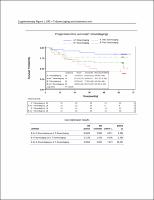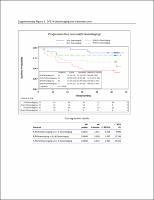| dc.contributor | Vall d'Hebron Barcelona Hospital Campus |
| dc.contributor.author | Salazar, Ramón |
| dc.contributor.author | Manzano, Jose Luis |
| dc.contributor.author | Pericay, Carles |
| dc.contributor.author | Martínez-Villacampa, Mercedes |
| dc.contributor.author | López Gil, Carlos |
| dc.contributor.author | Capdevila Castillon, Jaume |
| dc.date.accessioned | 2021-10-04T13:06:07Z |
| dc.date.available | 2021-10-04T13:06:07Z |
| dc.date.issued | 2020-11-27 |
| dc.identifier.citation | Salazar R, Capdevila J, Manzano JL, Pericay C, Martínez-Villacampa M, López C, et al. Phase II randomized trial of capecitabine with bevacizumab and external beam radiation therapy as preoperative treatment for patients with resectable locally advanced rectal adenocarcinoma: long term results. BMC Cancer 2020 Nov 27;20:1164. |
| dc.identifier.issn | 1471-2407 |
| dc.identifier.uri | https://hdl.handle.net/11351/6379 |
| dc.description | Bevacizumab; Quimiorradioteràpia; Càncer de recte avançat local |
| dc.description.sponsorship | Financial support for this research trial was provided by Roche Farma, S.A. |
| dc.language.iso | eng |
| dc.publisher | BMC |
| dc.relation.ispartofseries | BMC Cancer;20 |
| dc.rights | Attribution 4.0 International |
| dc.rights.uri | http://creativecommons.org/licenses/by/4.0/ |
| dc.source | Scientia |
| dc.subject | Recte - Càncer - Radioteràpia |
| dc.subject | Recte - Càncer - Quimioteràpia |
| dc.subject.mesh | Rectal Neoplasms |
| dc.subject.mesh | Chemoradiotherapy, Adjuvant |
| dc.title | Phase II randomized trial of capecitabine with bevacizumab and external beam radiation therapy as preoperative treatment for patients with resectable locally advanced rectal adenocarcinoma: long term results |
| dc.type | info:eu-repo/semantics/article |
| dc.identifier.doi | 10.1186/s12885-020-07661-z |
| dc.subject.decs | neoplasias del recto |
| dc.subject.decs | quimiorradioterapia complementaria |
| dc.relation.publishversion | https://doi.org/10.1186/s12885-020-07661-z |
| dc.type.version | info:eu-repo/semantics/publishedVersion |
| dc.audience | Professionals |
| dc.contributor.organismes | Institut Català de la Salut |
| dc.contributor.authoraffiliation | [Salazar R, Martínez-Villacampa M] Medical Oncology. Oncobell Program IDIBELL Institut Català d’Oncologia Hospital Duran i Reynals, CIBERONC, Barcelona, Spain. [Capdevila J] Servei d’Oncologia Mèdica, Vall d’Hebron Hospital Universitari, Barcelona, Spain. [Manzano JL] Medical Oncology, ICO. Hospital Germans Trias i Pujol, Barcelona, Spain. [Pericay C] Medical Oncology, C. S. Parc Taulí, Barcelona, Spain. [López C] Hospital Marqués de Valdecilla, Santander, Spain |
| dc.identifier.pmid | 33246428 |
| dc.identifier.wos | 000595793600006 |
| dc.rights.accessrights | info:eu-repo/semantics/openAccess |



